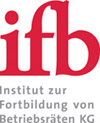 |
| Welcome to issue no. 4 / 2009 of EWC News. 28th December 2009
|
|
The
training and consultancy network
"euro-workscouncil.net"
EWC
News appears four times a year.
You can find past issues in the newsletter archives.
|
| 1.
Injunctions in company restructuring
|
|
Once again a large merger has been put on hold in France following legal proceedings for incomplete consultation of the works councils. As a consequence of the financial market crisis and under pressure from the French government the controlling bodies of 20 people’s banks (Banque Populaire) and 17 savings banks (Caisses d'Épargne) merged on 31st July 2009 to form France’s second largest bank, BPCE. 10.000 of the 120.000 employees are likely to lose their jobs.
On 4th June 2009, in a meeting of the national works council of the savings bank group “Caisse d’Epargne”, employee representatives requested information on planned workforce reductions, on possible wage-cuts and on any deterioration of working conditions. Following management’s refusal to disclose its strategic plans, the work councils in two regions (Île de France and Midi Pyrénées) took legal action.
On 31st July 2009 the district court in Paris provisionally ruled to prohibit management from implementing any measures related to the merger as long as the information and consultation process with the work councils on the consequences of the merger had not been correctly accomplished and finalized. For any violation the company would have to pay a fine of € 100,000 per day. Similarly to the “Gaz de France” case (see report in EWC News 1/2008) this temporarily brought a halt to important steps of the merger and put considerable pressure on central management to start negotiations with trade unions for a compensation agreement. The court lifted the interim injunction on 27th October, 2009 only after the completion of another consultation procedure. The following texts are available in French only: A European Works Council has not yet been established in either of the banking groups. Although the lawsuit was won by a French works council it can nevertheless serve as an example for EWC rights since the principles of information and consultation, as found in many EU legislations, have their origin in French labour law.
Goodyear severance plan cannot be implemented
Controversial injunction rights in Germany
In comparison, injunction rights for German works council are rudimentary. There have been recently however several verdicts which follow the French example and prevent employers taking unilateral measures during company restructuring; e.g. the decision of the Munich county industrial tribunal (LAG) of 22nd December 2008 in the case of Nokia Siemens Networks (see also report in EWC News 2/2007). In this respect the judges particularly refer to EU consultation rights which are not completely fulfilled by German Labour Law. The following texts are available in German only: |
| 2.
Further
recent court rulings |
| Negotiation
rights for
minority trade unions come under test
The new French labour law regulates trade union rights within companies. This governs which of the competing trade unions may conclude collective bargaining agreements. For the first time in French history the legislator has defined a threshold value for their representativity. As a result, trade unions with less than 10% of the votes in works council elections can neither conclude shop-floor collective agreements nor appoint trade union delegates within the company. Trade union delegates are not elected in France but appointed by the trade unions and negotiate collective bargaining agreements with the employer. The Brest ruling therefore gives negotiation rights to the Force Ouvrière (FO) trade union within the company.
The verdict will now be re-examined by the European Court of Justice. Should the judges in Luxembourg come to the conclusion that a legislative threshold value violates the freedom of association and EU rights, then in the future every minority group in any EU country will be able to obtain negotiation rights within companies. The following texts are available in French only:
Protection against dismissal for Belgian EWC members
In its court ruling of 28th September 2009, the industrial tribunal of Antwerp decided on the protection rights of Belgian members of European Works Councils. They are to be treated in the same manner as Belgian works council members. If the employer wishes to dismiss a Belgian EWC member, he must follow a special procedure. If not, the dismissed employee may claim special financial compensation. This also applies if the employee belongs only to the EWC and not to a Belgian works council.
On 4th November 2009, the highest French appeal court ruled on which authority is competent for disputes concerning the appointment of French EWC delegates. The case was initiated by the CGT union who was unable to send its EWC candidate to the EWC of the U.S. aeroplane supplier, Hamilton Sundstrad. As in a similar case in Germany (see report in EWC News 1/2008) the judges in Paris decided in favour of the national courts.
Employee ranking quotas illegal
On 27th November 2009, the district court in Nanterre near Paris ruled on a complaint filed by the Hewlett-Packard works council. The judges prohibited their French management from dictating to its executives a quota of 5% of bad ranking to be given to their subordinates. Moreover, the works council had not been consulted prior to this measure. The concerned employees may now claim compensation. |
| 3. Demands
for correct consultation procedures
|
|
U.S. automobile supplier refuses social dialogue
On 10th November 2009, the European Works Council of the Telecom and Network outfitter Alcatel-Lucent staged a day of action in six European countries. Some support was also given from US employees. Since the merger of the two former companies in December 2006, four restructuring programmes have been carried out up to now and thousands of jobs dismantled. The EWC already won a court case for insufficient information in April 2007 (see report in EWC News 2/2007).
In an interview with the Wall Street Journal on 24th November 2009, the president of the French luxury goods group, Pinault-Printemps-Redoute (PPR), announced the sale of both the FNAC (electronics and books) and Conforama (furniture) retail chains. PPR wants to concentrate on its luxury brands such as Gucci and Yves Saint Laurent. A press statement from the CGT trade union criticizes the fact that although the PPR European Works Council was convened in a meeting on the day of the interview, it was not informed by central management about its plans to sell. PPR signed two agreements with the EWC in October 2008 on its social responsibility (see report in EWC News 4/2008).
|
| 4. Influencing
control on restructuring |
|
On 2nd November 2009, the central management of ArcelorMittal signed a framework agreement with the European Metalworkers Federation (EMF) covering the 115,000 European employees of the Luxembourg based steel group which has been hit hard by the financial crisis (see report in EWC News 1/2009). Its aim is to promote long term job security, the development of employee competency and to improve social dialogue.
Second pillar to support EWC
In parallel to the European Works Council established in 2007 (see report in EWC News 2/2007), a high-profile group for monitoring social dialogue has now been set up. It is made up of twelve trade union and twelve employer representatives and meets quarterly. One of its tasks is to monitor the profitability of all sites and the supervision of the framework agreement. It will be supported by national parity based control committees established in each country. An arbitration board is planned for any disputes which arise.
Mahle EWC secures social plan in Italy
On 4th December 2009, the Dutch-British Corus group announced its intention to mothball its steelworks Redcar in the northeast of England. As a consequence 1,700 of the 2,600 jobs in the Teesside region would be lost. The subject was up for discussion in a meeting of the EWC held on 9th December 2009 in Ijmuiden (Netherlands). It criticized in a press release that no alternative plans had been discussed and a certain number of their questions remained unanswered. Management held discussions on the future of the plant with British trade unions on 17th December 2009. It was agreed to put in place a common taskforce to examine alternative solutions. The official consultations will start in January 2010. The EWC was established under British law in the year 2000 following the merger of British Steel and Koninklijke Hoogovens to form Corus. There had already existed similar bodies in both of the former companies since 1996. |
|
5. New
European Works Councils |
| Delay at German Locomotive Manufacturer
The creation of the EWC was of particular importance to the Spanish unions since Vossloh runs a large locomotive manufacturing plant in Valencia. Twelve delegates from ten countries participated in the constitutional meeting at Möhnesee (Westphalia) on 9th December 2009 and elected a steering committee of three members (from Germany, Spain and Poland). It will meet several times per year.
On 5th October 2009, the central management of Brinks Security International in Paris and the secretary of the newly created EWC signed a set of internal standing rules which largely resemble a normal EWC agreement. Since negotiations could not be concluded within the legal deadline of three years, the EWC is created on the basis of the subsidiary regulations of the French EWC legislation.
It is composed of nine countries: France, Benelux, Germany, Hungary, Greece, Ireland and Poland. The EWC is chaired by the employer who has full voting rights and may consult another two managers with consultative voice. The EWC is explicitly recognised as a legal entity, facilitating any legal action. The employees' side elects a speaker ("secretary"), a treasurer and another four members to form a steering committee. The employer bears all regular costs and the EWC receives in addition an annual budget of € 15,000 which is at its disposal to pay for trainings and IT material. On top of their participation to regular meetings, members of the steering committee can have up to 120 hours per year time-off.
An EWC agreement was signed under French law at the headquarters of the insurance broker, Gras Savoye, in the Parisian suburb Neuilly, on 6th November 2009. A total of 16 EWC members, nine from France and one from each of 7 further countries, meet once a year under the chairmanship of the employer. A four-headed steering committee made up of the CEO and three employee representatives is responsible for day-to-day operations. The representatives have ten hours per annum time-off over and above their participation to meetings. The company bears all regular costs. The steering committee disposes of its own annual budget of € 2,000 which is very little by French standards. Information and consultation rights do not go beyond the standards of the old EWC Directive.
Updated EWC statistics from Brussels
|
| 6. Group
reorganisations change EWC structure
|
| U.S. pharmaceutical companies merge
Following the announcement of the decision of the Belgian brewery group Anheuser-Bush InBev to sell its entire East-European business to a financial investor (see report in EWC News 3/2009) and under pressure from the trade unions, two extraordinary sessions of the European Works Council have taken place. Up to now central management has however refused to give access to the sales contract.
The trade unions are at present trying to make initial contact with the new owner. Since the East-European delegates will soon no longer belong to the EWC of Anheuser-Bush InBev, the job of creating the European Works Council for the new company under Czech law has to be dealt with immediately. There are already problems with local management in Romania and Hungary.
Announced Merger of transport groups
More than two years after the merger of the raw material groups Rio Tinto and Alcan (see report in EWC News 2/2007), the sale of the Alcan Packaging division, with 14,000 employees in 28 countries, was finally concluded on 23rd December 2009. Central management pointed out to the press that the European Works Council had also been consulted. The latter had repeatedly demanded this through several protests (see report in EWC News 1/2008).
As the new owner, the Australian packing group Amcor, has already started to adapt the organizational structure for its 75 plants in Europe. The German production plant in Singen (photo) will be split into three independent companies. The European Commission had given the go-ahead for the transaction on 15th December 2009 under the condition that Amcor sell two very profitable plants in Spain which produce packaging for the pharmaceutical industry.
Rio Tinto has only had a European Works Council under French legislation since June 2008, and which replaced the former council of Alcan in place since 1996 (see report in EWC News 3/2008). Amcor has had an EWC under German legislation since 1998. Due to the size of the transaction both councils are now faced with structural trimming. If the new Directive were already transposed, they would have a legal right to renegotiate the EWC agreement. |
| 7. The European
Company (SE) |
| Lenze freezes co-determination
The new SE works council is made up of 17 delegates from eleven countries and meets twice a year. They elect a five-member steering committee with a right to meet three times per year and to access all European sites. There was previously no European Works Council at Lenze.
According to estimates from the Hans Böckler Foundation there were altogether 431 European companies in Europe at the end of August 2009. However, only 99 of them are operating normally. Noticeable is the high number for Germany where no fewer than 64 of the 99 "normal" companies have their headquarters. The reason: many employers use the SE transformation to either completely avoid or freeze to one third, the participation rights in their supervisory boards. This is specifically referred to in the business press (see report in EWC News 2/2008). Moreover, companies already operating under parity co-determination frequently reduce the size of their supervisory board in the course of SE transformation. The following documents are available in German only: ... this is just the tip of the iceberg
Initiatives for the transition to SE originate exclusively from the employers' side. In many cases works councils are informed of the events with very short notice. At present, of all the German companies with parity based co-determination, hardly more than 1% have undertaken an SE transition. Nevertheless, and if only for the reasons mentioned above, a considerable increase can be expected in the coming years. The legal entity SE could therefore develop into one of the greatest challenges for the German co-determination system since the Second World War. The following two examples show clearly the challenges for German employee representatives:
A "European Worker Participation Competence Centre" (EWPCC) has recently been set up by the European Trade Union Institute in Brussels and will provide employee representatives support for their work in supervisory boards of European Companies (SE). It is financed from a fund which is fed by the royalties of these employee representatives. The EWPCC works therefore similarly to the Hans Böckler foundation in Germany whose budget is supplied from the royalties of employee representatives on German supervisory boards. There are at present around 75 employee representatives sitting on 23 European-wide SE supervisory boards, with a rising trend.
While the transfer of remunerations triggers a positive acceptance in continental European countries, it meets with a mixed opinion in the Anglo-Saxon cultural area. The London Financial Times described the model as a "gold mine" for the trade unions. The funds would finance campaigns which could work directly against the shareholder’s interests. Employers would therefore ultimately finance their arch-enemies (see report in the Financial Times). |
|
For the first time in the French food group Danone, 60 employee representatives from twenty countries around the world met in Geneva from 12th to 14th October 2009 together with the central management. The non-European representatives were able to assist as guests in a plenary session of the Danone Information and Consultation Committee (CIC) -- the name given to the European Works Council founded in 1988. The CIC may hereby ultimately grow into the role of a World Works Council. A world-wide antidiscrimination agreement has already existed since June 2007 at Danone (see report in EWC News 4/2007).
On 29th October 2009 a charter for industrial relations was signed by central management of Volkswagen at the meeting of their group’s World Works Council in Zwickau, Germany (photo). It sets down minimum standards for local employee representation bodies in more than 60 plants of the automobile group within 15 countries. The worldwide charter is to be transposed everywhere into concrete terms through a local plant specific participation agreement.
Employee representatives in all Volkswagen sites therefore now have the right to hold up to four general assemblies per year and local management informs the entire workforce once a year. A supervisory group at the Volkswagen’s headquarters monitors compliance with the charter. Under the initiative of the European Works Council an agreement was reached for the establishment of a works council in the newly opened plant in Kaluga (Russia) on 25th September 2009.
The World works council of Tenaris met in Bergamo from 28th to 30th October, 2009. Although the central management of the Italian tube manufacturer recognises the new EWC composed of delegates from Italy and Romania (see report in EWC News 1/2009), it refuses, however, to discuss with employee representatives from the other four countries outside Europe. The World works council staged a demonstration against this, with large media coverage, in front of the headquarters of the company in Dalmine (photo).
Employee representatives from Siemens Europe, India, Brazil, China and the USA met in Munich for an international workshop from 24th to 25th November 2009. While the previous three world meetings were all funded by trade unions, central management bore for the first time all costs and was open to discussion. The establishment of a World works council and an international framework agreement for minimum social standards are currently under debate. A few days later from 5th to 7th December 2009, Indian and European employee representatives from Siemens discussed improvements to networking at a seminar in Mumbai. |
|
9. Transposition
of the new EWC Directive begins
|
| Portugal pushes ahead
The transposition in the United Kingdom is awaited with great interest since the British government was the only to abstain from the vote at the Council of Ministers in Brussels (see report in EWC News 4/2008). The Department for Business, Innovation & Skills (BIS) started a public consultation already on 19th November 2009, on the implementation of the EWC Directive and which will run until 12th February 2010. This document includes a draft bill (starting page 38):
Trade union recommendations for ongoing EWC negotiations
On 9th December, 2009, several European trade union federations have published a common recommendation for EWC agreements to be concluded before June 2011. The paper aims at ensuring that the new EWC Directive’s regulations already come fully into effect during the transition period leading up to the transposition into national legislations. |
| Dutch groups monitored
Company reports on social responsibility and sustainable business are available for download on the British web page "ReportAlert". The publications are available immediately following their publication and ordered chronologically.
Trade union position statements on EU industrial policy
The international cooperation between BASF central management and employee representation bodies is presented in detail on a company internet page. BASF was one of the first large companies to have made the transition to a European Company (SE) in January 2008 and to establish a European-wide SE Works Council (see report in EWC News 4/2007). There is also a program for global dialogue. We have arranged various further interesting web-pages into a collection of links.
|
| 11. New
Publications |
| Project report on future of labour relations
A new study from Heribert Kohl, an expert on Eastern Europe, was published in September 2009. It examines the development of works councils, the spread of trade union membership, social dialogue and collective bargaining policies in 16 countries from Middle and Eastern Europe as well as the western Balkans. Of particular importance is how the financial market crisis was overcome in these countries and what effects can be observed on labour relations. For European Works Council members the study offers a treasure-chest of information and statistics for a better understanding of the situation of representatives in these countries.
This book which contains the results of a Hans Böckler Foundation research project was published in November 2009. Part 1 can be used as a reference book on branch federations at both European and worldwide levels. Apart from the presentation of the federations, the authors of the book of the “Research team on European and global labour relations” from the University of Fulda who have also been conducting EWC research for many years also examine specific aspects of their trade-union work. As an example Part 2 of the publication deals with international framework agreements and another chapter with European works councils. The book is available only in German.
Newsletter for sustainable development
At the end of November 2009, the European Trade Union Institute, (ETUI), started a new electronic publication on sustainable development. The monthly newsletter from Brussels will report on any trade union activities related to questions on climate policy, job security and social justice. |
| 12. Training and Consultancy
Network "euro-workscouncil.net”:
Examples of our work
|
|
Interviews and publications
In December 2009 der betriebsrat magazine published an article under the title “Family Business Sets Standards” concerning the negotiation of a participation agreement for the Bavarian Metal Company Warema, which recently made the transition to a European Company (SE) (see report in EWC News 3/2009). EIRO, the online portal of the European Foundation for the Improvement of Living and Working Conditions in Dublin had already analysed in September 2009 which elements of the Warema agreement could be regarded as trend-setting for co-determination in the European Company (SE). The December 2009 edition of the AiBplus technical journal reported on the negotiations for the establishment of a European Works Council in the Japanese pharmaceutical company Takeda. The special negotiation body (SNB) is currently being assisted by Dr. Werner Altmeyer from the training and consultancy network "euro-workscouncil.net" (see report in EWC News 1/2009).
In cooperation with partners from five other EU countries the training and consultancy network "euro-workscouncil.net" is holding a number of workshops in the course of 2010 on the new EWC Directive. They are initiated by UNI, the European federation of trade unions in the services sector. Venues are planned in Paris, London, Madrid, Berlin, Bucharest and Warsaw. The agenda will be fixed in the project team meeting in Paris on January 13th, 2009 and published in the next version of the EWC News.
The British consultancy firm ADAPT International, apart from its research activities, devotes itself primarily to train employee representative on their information and consultation rights at both national and European levels. The company founder, David Tarren, was already used to focusing his activities on socially responsible restructuring and on the promotion of social dialogue during his work as a full-time trade union officer for Unite (up to March 2008). ADAPT International and the training and consultancy network "euro-workscouncil.net" will combine their activities in the German-British context and on EU projects in the future. |
|
13.
Current Seminar Schedule
|
|
Registration is open for the following seminars and workshops (only in German):
Legal and practical issues in EWC work 25-01-2010 in Hamburg Workers' participation à la française? 26-01-2010 in Hamburg (both dates can be booked separately) English language course for EWC members 13 -- 19-06-2010 in Eastborne (England) French-German EWC conference 05 -- 07-07-2010 in Paris
Workshop for European Work Councils October 2010 in Montabaur
Institutions, political background, European works councils 24 -- 26-03-2010 in Bad Orb
European Labour Law and European Court of Justice
12 -- 16-04-2010 in Trier
Seminars from the Institute for further education of works councils (ifb)
Basic seminar: The path to the European Works Council 07 -- 11-06-2010 in Fulda 08 -- 12-11-2010 in Hannover
Advanced seminar: Practical knowledge, EWC special 14 -- 18-06-2010 in Erfurt 15 -- 19-11-2010 in Hamburg
In-house events Please find a survey of possible subjects of in-house events here: |
| 14. Imprint
|
EWC
News is published by: Training
and consultancy network "euro-betriebsrat.de" GbR Von-der-Tann-Straße
4, D-20259 Hamburg www.euro-workscouncil.net (English) www.euro-ce.org
(French) Authors
collaborating on this
issue: Werner Altmeyer, Bernhard Stelzl Distributor
of the German
version: 13,000 readers Distributor of
the English version: 1,732 readers Distributor of
the French version: 1,460 readers Newsletter
archive: www.ewc-news.com
We are always pleased to
receive comments and suggestions in relation to this newsletter as well
as reports on your EWC activities. Please write us at: info@euro-workscouncil.net
www.euro-betriebsrat.de (German)




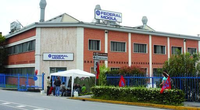
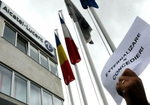

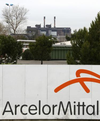
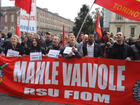

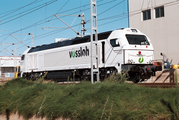

 French insurance company
creates EWC under old Directive
French insurance company
creates EWC under old Directive The European trade union
institute (ETUI) published new figures on European Works Councils on
13th November 2009: altogether, there are now 938. The surge of
creations has noticeably receded in 2009 in comparison with the
previous years. This is possibly connected with the new EWC Directive
since all EWC agreements signed in the transition period between June
2009 and June 2011 are subject to special rules.
The European trade union
institute (ETUI) published new figures on European Works Councils on
13th November 2009: altogether, there are now 938. The surge of
creations has noticeably receded in 2009 in comparison with the
previous years. This is possibly connected with the new EWC Directive
since all EWC agreements signed in the transition period between June
2009 and June 2011 are subject to special rules.


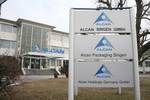
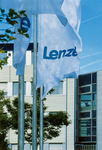
 New
figures on SE ...
New
figures on SE ... 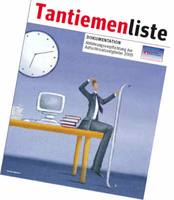 Employee
representatives contribute to fund
Employee
representatives contribute to fund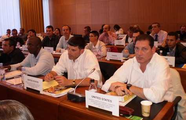
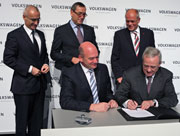
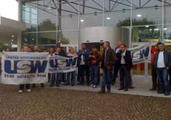

 New
European Works Council legislation which transposes the revised EWC
Directive into national law came into force in Portugal on 2nd November
2009. Although the deadline set by the EU expires only on 5th June
2011, the legislation was already passed by parliament on 23rd July
2009 and was published in the official journal on 3rd September 2009.
Portugal is the first country which provides better operating
conditions for European Works Councils. However this country, on the
western outskirts of Europe, numerically does not play an important
role. Only nine companies with their headquarters in Portugal come
under the Directive, and the finance institute, Banco Espirito Santo
from Lisbon, is the only one of them to have founded an EWC so far.
New
European Works Council legislation which transposes the revised EWC
Directive into national law came into force in Portugal on 2nd November
2009. Although the deadline set by the EU expires only on 5th June
2011, the legislation was already passed by parliament on 23rd July
2009 and was published in the official journal on 3rd September 2009.
Portugal is the first country which provides better operating
conditions for European Works Councils. However this country, on the
western outskirts of Europe, numerically does not play an important
role. Only nine companies with their headquarters in Portugal come
under the Directive, and the finance institute, Banco Espirito Santo
from Lisbon, is the only one of them to have founded an EWC so far.

 Updates
on corporate social responsibility
Updates
on corporate social responsibility

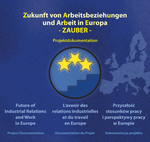
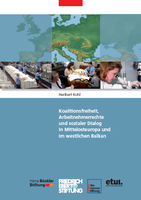
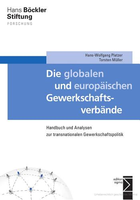

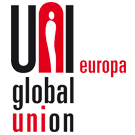 Training on new EWC
Directive
Training on new EWC
Directive
 Hamburg
Conference for European Work Councils
Hamburg
Conference for European Work Councils Europe
for IG Metall trade union officers
Europe
for IG Metall trade union officers  Significance
for the work of representatives in the workplace
Significance
for the work of representatives in the workplace 